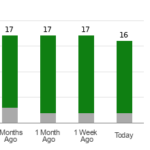No matter the stance taken during the chaotic meme stock frenzy of 2021, the stock market resembled the lawless frontier of the Wild West.
Among the meme stocks, GameStop (GME) emerged as the leader, rattling the market with a short squeeze of unprecedented proportions.
While other meme stocks like AMC Entertainment (AMC) also inflicted pain on short-sellers, triggering volatile price fluctuations, the saga is far from over. Let’s delve deeper into the ongoing spectacle.
The Resurgence of Roaring Kitty
Roaring Kitty, also known as Keith Gill, played a pivotal role in the initial 2021 meme stock frenzy, drawing attention to short sellers and sparking a massive short squeeze in GameStop shares. AMC Entertainment and other heavily-shorted stocks followed suit, amplifying the woes of short sellers.
After a period of dormancy, Roaring Kitty resurfaced on social media recently, breaking years of silence. This revival prompted meme-stock enthusiasts to flock back, leading to extreme volatility in GME shares.
GameStop’s Current Position
Following the release of its latest quarterly results, GameStop witnessed a substantial decline in sales compared to the previous year. The accompanying announcement of a $75 million at-the-market offering further exacerbated pressure on GME shares.
The company’s future prospects have taken a hit, with the stock currently holding a Zacks Rank #5 (Strong Sell). The recent surge in trading activity driven by a short squeeze does not align with the company’s current earnings outlook.

Image Source: Zacks Investment Research
Final Thoughts
When heavily-shorted stocks start to climb, it triggers a vicious cycle for short sellers who are compelled to cover their positions by repurchasing borrowed shares. This results in substantial losses for those unable to cover their positions, while traders revel in the ensuing rollercoaster ride.
This scenario mirrors the events of 2021 when meme stocks such as GameStop and AMC Entertainment dominated headlines with their unprecedented market antics.





